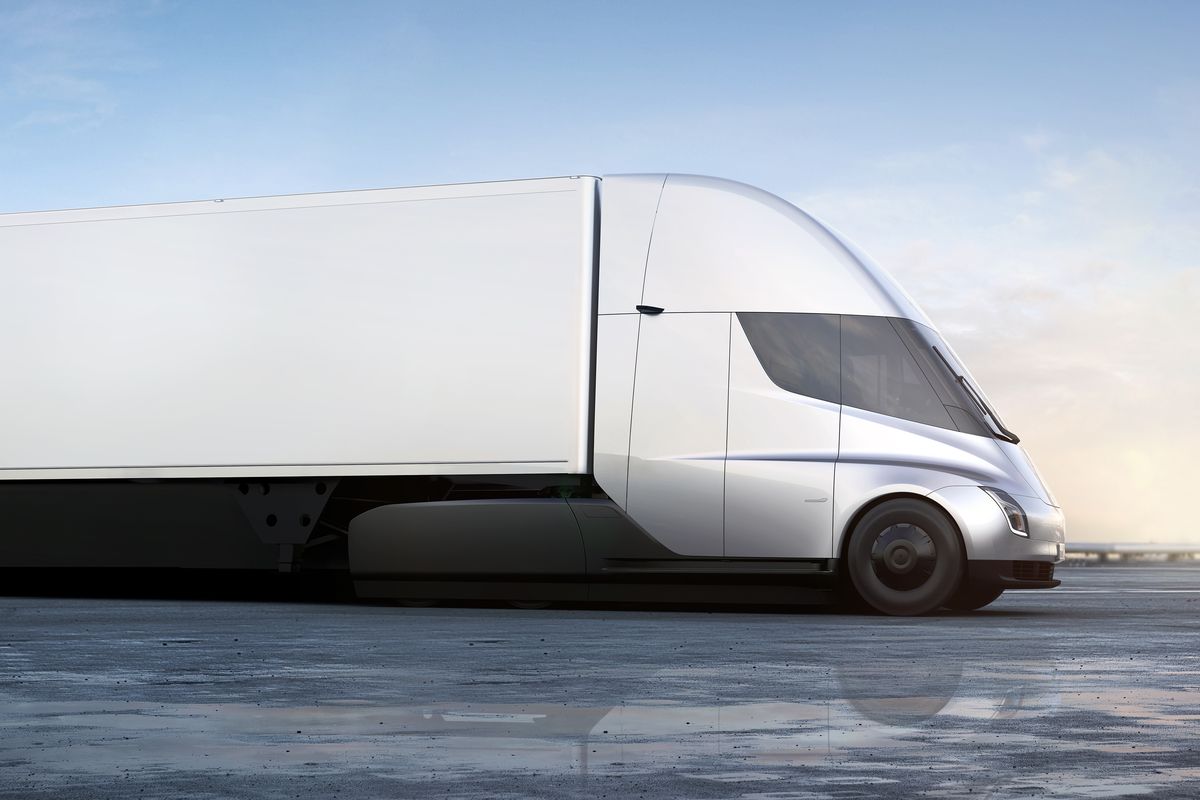Orders Pile Up For Tesla Semi
 |
| Tesla Semi |
When two sleek Tesla Semis sped across an airport tarmac next to the SpaceX rocket factory in Los Angeles in November, Elon Musk rocked the heavy-duty vehicle market with a disruptive vision of the future. But as eager customers settle in for a two-year wait for the all-electric behemoth, a robust market for heavy-duty electric trucks and buses is already taking shape.
Tesla quickly racked up about 400 truck reservations from big haulers like UPS and Anheuser-Busch through December. But as those deposits arrive, fast-growing startup Proterra, packed with ex-Tesla employees, got an order for 25 battery buses from the Los Angeles Department of Transportation in December, each priced at about $700,000, as the agency converts a 359-vehicle fleet to electric. That complements the Los Angeles County Metropolitan Transportation Authority’s recent $138 million order for electric buses from New Flyer and China-based BYD as it too replaces thousands of natural gas vehicles.
“Bus transit, because of the defined route, the limited daily mileage, the number of miles driven per year, all of that makes it a perfect application for battery electric which is why that market is going to go 100% electric faster than any of the other transportation sectors out there," Matt Horton, Proterra’s chief commercial officer told Forbes. The private California company is approaching 500 sales and recently added a Los Angeles factory to supply West Coast customers.
Electric buses able to travel up to 200 miles a day in city driving already account for about 10% of U.S. transit agency orders in 2017, and rivals Proterra and BYD expect those sales to keep growing as the performance of their vehicles improves and operating costs stay well below that of diesel and CNG models. Even with Musk’s prodigious marketing talents, battery-electric semi-trucks will take longer to catch on, assuming that Tesla’s Semi actually launches on schedule in 2019 or 2020.
“Long-haul trucking is the most challenging duty cycle for a battery-electric vehicle to perform, given the long distances required at freeway speeds with a heavy payload in tow," Horton said.
Proterra opened a Los Angeles-area bus factory in July to supply transit agencies west of the Mississippi.
Pressure to cut climate-altering carbon emissions in California, Europe and China has accelerated demand from cities, transit agencies and cargo handlers and shippers for cleaner vehicles, and companies are responding with lower-emission diesel systems, plug-in hybrid trucks and fully electric powertrains – including some that get electricity from hydrogen rather than batteries. Along with buses, the new players are finding customers ready to deploy heavy-duty battery vehicles in specific types of applications.
Tesla’s eye-catching design and claimed range of up to 500 miles per charge was even better than the 300 miles that was expected, as is its claim that the semi will produce fuel savings of $200,000 or more and a “two-year payback" period. That explains why UPS, Pepsico, Sysco and Anheuser-Busch, which put down up to $20,000 in refundable deposits per truck, want to be among its first buyers.
Musk’s expected base prices of $150,000 for 300-mile range trucks and $180,000 for 500-mile semis, combined with their lower operating costs per mile versus diesel trucks, makes them even more attractive to companies with vast fleets.
There’s also public relations value in committing to buying what could be the most disruptive and environmentally friendly heavy-duty truck ever developed. Alan Ohnsman/Forbes
